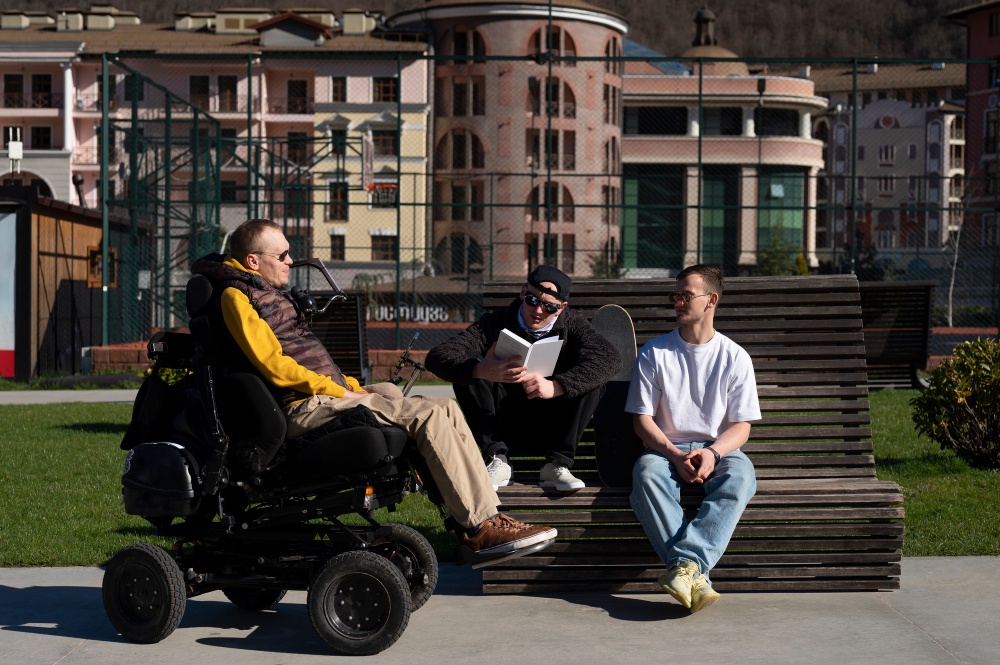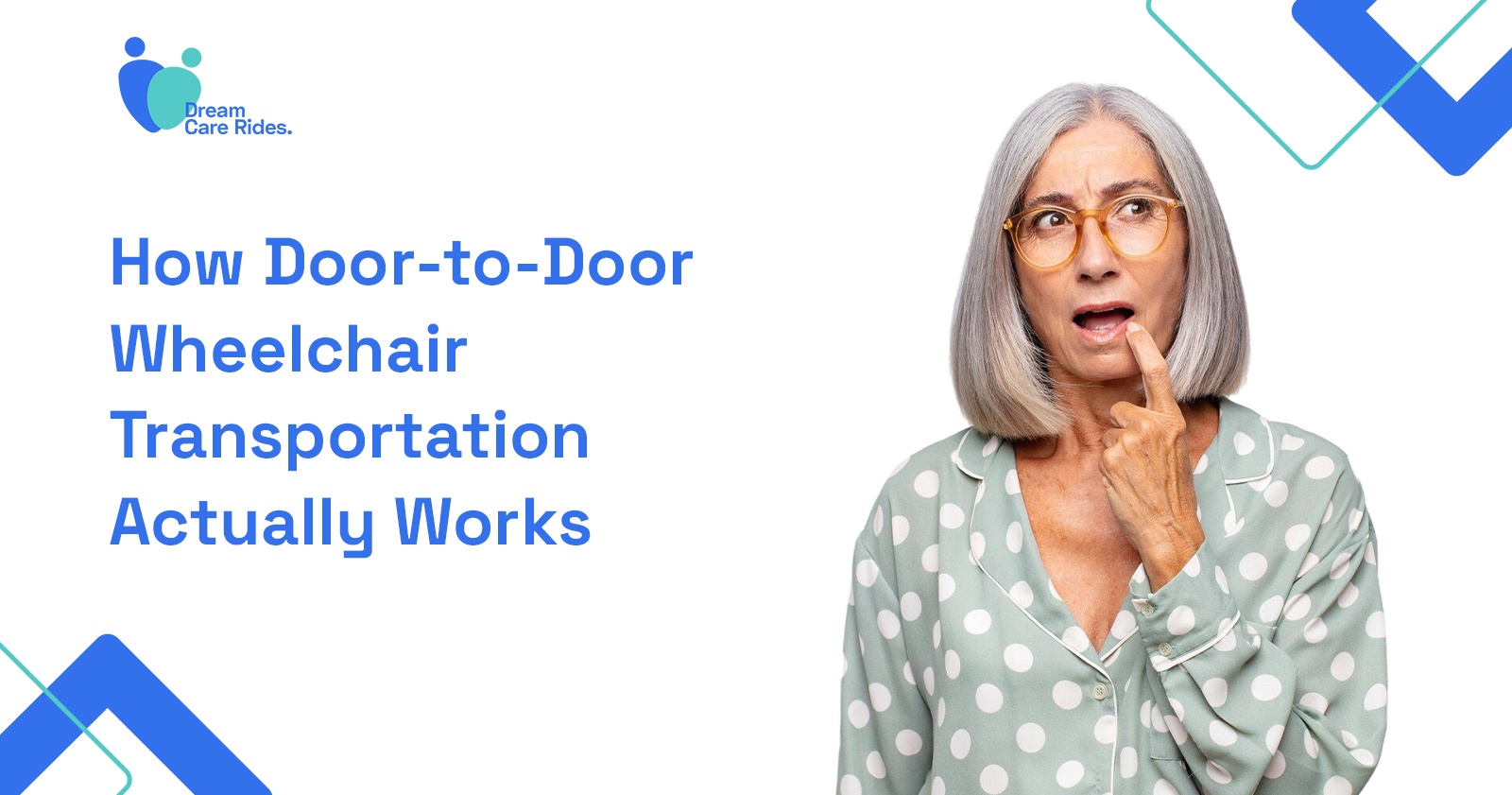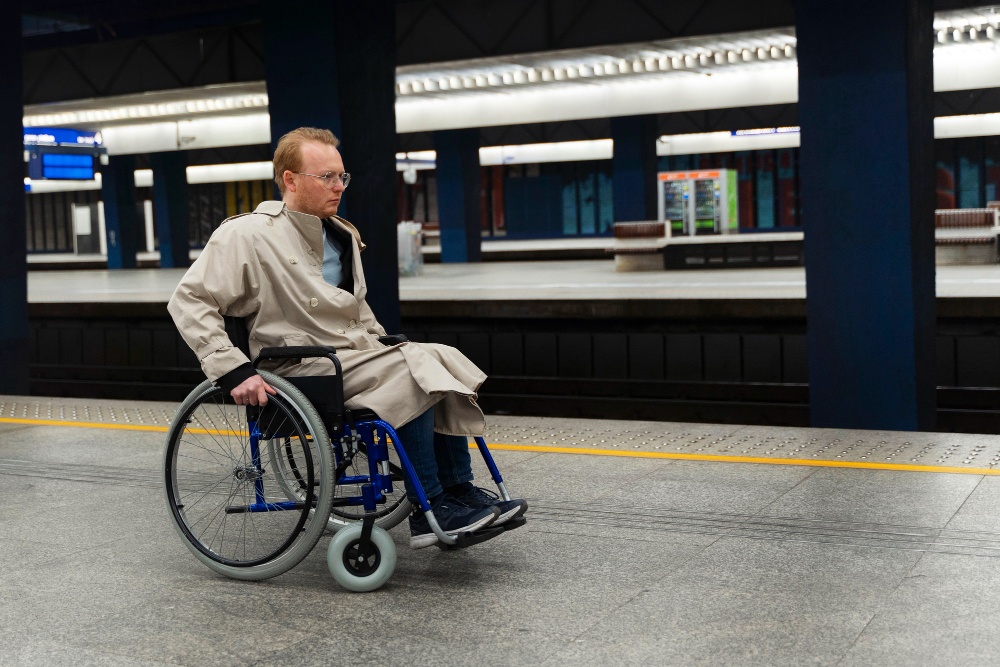Is Chicago Wheelchair Friendly? What You Need to Know
Imagine a trip where getting around Chicago as a wheelchair user is not only easy but enjoyable....
Created by: Daniel Ogunsemowo /
Vetted by:
Otse Amorighoye

Navigating Chicago as a Wheelchair User
For wheelchair users, Chicago, one of the largest cities in the U.S., offers many opportunities to explore and engage, but the journey can often be met with challenges. From navigating the bustling streets to accessing public transportation, being informed about Chicago's wheelchair accessibility is crucial.
While the city has made strides in improving accessibility, the experience varies depending on the area, public transportation options, and access to wheelchair-friendly services. According to the Centers for Disease Control and Prevention (CDC), over 3 million Americans use a wheelchair, and cities like Chicago must ensure their infrastructure supports all residents and visitors.
Imagine a trip where getting around Chicago as a wheelchair user is not only easy but enjoyable. Whether it's visiting Millennium Park, catching a game at Wrigley Field, or taking a leisurely ride along Lake Michigan, having access to resources and services makes all the difference.
In this guide, we will explore the key factors that determine how wheelchair-friendly Chicago is, offering practical insights into transportation options, accessible attractions, and local services such as DreamCareRides. By the end, you'll be equipped with everything you need to navigate the city seamlessly.
Public Transportation Options for Wheelchair Users
Public transportation is a lifeline for many residents and visitors in Chicago, and for wheelchair users, the city's systems provide varying levels of accessibility.
1. Chicago Transit Authority (CTA) Buses and Trains
The CTA operates one of the largest public transit systems in the country. The CTA buses are 100% accessible, equipped with ramps, kneeling capabilities, and designated spaces for wheelchairs. Many of the CTA train stations are accessible as well, though some older stations may lack elevators or ramps.
As of 2023, over 70% of CTA train stations are wheelchair accessible, with plans to upgrade more stations through the All Stations Accessibility Program (ASAP). This initiative aims to make all stations fully accessible by 2038.
2. Metra Commuter Rail
Metra, the commuter rail service for the Chicago area, is mostly accessible. All Metra trains are equipped with accessible seating areas, and most stations provide ramps, although some older stations may still pose difficulties for wheelchair users.
3. Pace Paratransit Service
Pace operates a paratransit service specifically for individuals with disabilities, offering curb-to-curb service that ensures riders can get to their destinations without the challenges of navigating traditional bus and train routes. The service is available throughout the Chicago suburbs and some parts of the city.
Sidewalks, Streets, and Public Spaces
Navigating Chicago’s streets and public spaces as a wheelchair user is essential for daily life and tourism. While many areas of the city have been updated to meet ADA (Americans with Disabilities Act) standards, challenges still exist.
1. Sidewalks
Chicago’s downtown area, including the Loop and Magnificent Mile, generally provides wide, well-maintained sidewalks with curb cuts at intersections. However, some neighborhoods and older parts of the city still lack sufficient curb ramps or feature uneven sidewalks, which can be problematic for wheelchair users.
2. Crosswalks and Intersections
Many intersections in Chicago are equipped with audible signals and tactile paving, helping those with mobility challenges cross safely. However, during harsh winter months, snow and ice can obstruct sidewalks and ramps, reducing accessibility.
Ride-Sharing and Taxi Services for Wheelchair Users
While public transportation is accessible, there are additional transportation options for wheelchair users looking for more convenience and flexibility.
1. Accessible Ride-Sharing
Uber and Lyft both offer wheelchair-accessible vehicle (WAV) options in Chicago. These services allow users to request vehicles that can accommodate their wheelchairs, providing an alternative to traditional public transport. However, the availability of WAV vehicles may fluctuate depending on demand and location.
2. Taxi Services
Chicago's taxi fleet includes accessible vehicles through companies like Open Taxis. This centralized dispatch service connects wheelchair users with licensed taxis equipped with ramps and extra space, ensuring safe and reliable transportation.
Non-Emergency Medical Transportation (NEMT) Services
For wheelchair users needing transportation to medical appointments, Chicago offers several Non-Emergency Medical Transportation (NEMT) options.
1. DreamCareRides
DreamCareRides is a trusted NEMT provider in Chicago that specializes in wheelchair transportation. Their services are designed to ensure a smooth and safe ride to and from medical appointments, including doctor’s visits, dialysis, or rehabilitation.
Flexible Options: DreamCareRides offers wait-and-return services, allowing patients to complete their appointments and return home comfortably without waiting for additional transportation.
2. Medicaid Coverage
For Medicaid recipients, NEMT services may be covered as part of their healthcare plan, ensuring access to critical medical care.
Accessible Attractions and Venues in Chicago
Chicago is home to numerous wheelchair-accessible attractions that offer an enriching experience for all visitors.
1. Millennium Park
One of the city's most famous landmarks, Millennium Park, is fully accessible with wide pathways, ramps, and elevators. Wheelchair users can enjoy the iconic Cloud Gate sculpture and the surrounding green spaces.
2. Shedd Aquarium and Field Museum
Both the Shedd Aquarium and the Field Museum are committed to providing accessibility for all visitors, offering accessible entrances, restrooms, and exhibit areas. Wheelchairs are available for rent, and both attractions feature accessible parking.
3. Wrigley Field and Soldier Field
Sports enthusiasts will find both Wrigley Field and Soldier Field accommodating, with designated seating for wheelchair users, elevators, and accessible restrooms throughout the venues.
Accessibility Resources for Wheelchair Users in Chicago
Navigating Chicago can be much easier when you know where to find accessibility resources.
1. Access Living
Access Living is a Chicago-based nonprofit dedicated to empowering individuals with disabilities. They offer various programs and advocacy efforts to improve accessibility throughout the city.
2. Chicago Mayor’s Office for People with Disabilities (MOPD)
The MOPD works to promote accessibility and disability rights across the city. Their website offers information on accessible services, policies, and legal rights for wheelchair users.
DreamCareRides: Your Trusted Wheelchair Transportation in Chicago
For those seeking reliable wheelchair transportation, DreamCareRides stands out as a leader in NEMT services within Chicago. Specializing in wheelchair-accessible vehicles, DreamCareRides ensures that customers can travel with confidence to their medical appointments, social outings, and more.
Why DreamCareRides?: With a fleet of well-maintained, ADA-compliant vehicles, DreamCareRides offers professional drivers and flexible booking options. Whether you need a one-way trip or wait-and-return service, they are dedicated to providing accessible, affordable, and reliable transportation across the city.
Conclusion
Chicago offers a variety of options for wheelchair users, from public transportation and ride-sharing to accessible attractions and venues. While challenges remain in certain parts of the city, progress is being made to ensure that all residents and visitors can enjoy what Chicago has to offer. With services like DreamCareRides available, transportation doesn't have to be a barrier.
FAQs
1. Is Chicago a wheelchair-friendly city?
Chicago has made significant improvements to its accessibility, with public transportation, sidewalks, and many attractions offering wheelchair access. However, there are still areas in the city that may be more difficult to navigate.
2. Which public transportation options are best for wheelchair users in Chicago?
The CTA buses are fully accessible, and many train stations are equipped with elevators and ramps. Metra and Pace also offer accessible options for wheelchair users.
3. Are ride-sharing services accessible for wheelchair users in Chicago?
Yes, both Uber and Lyft provide wheelchair-accessible vehicles (WAVs) in Chicago, though availability may vary depending on demand.
4. How can I book a wheelchair-accessible taxi in Chicago?
Chicago offers accessible taxis through services like Open Taxis, which can be booked via phone or through a mobile app.
5. What NEMT services are available for wheelchair users in Chicago?
DreamCareRides provides reliable NEMT services, specializing in wheelchair transportation for medical appointments and other essential trips.
Related Articles





